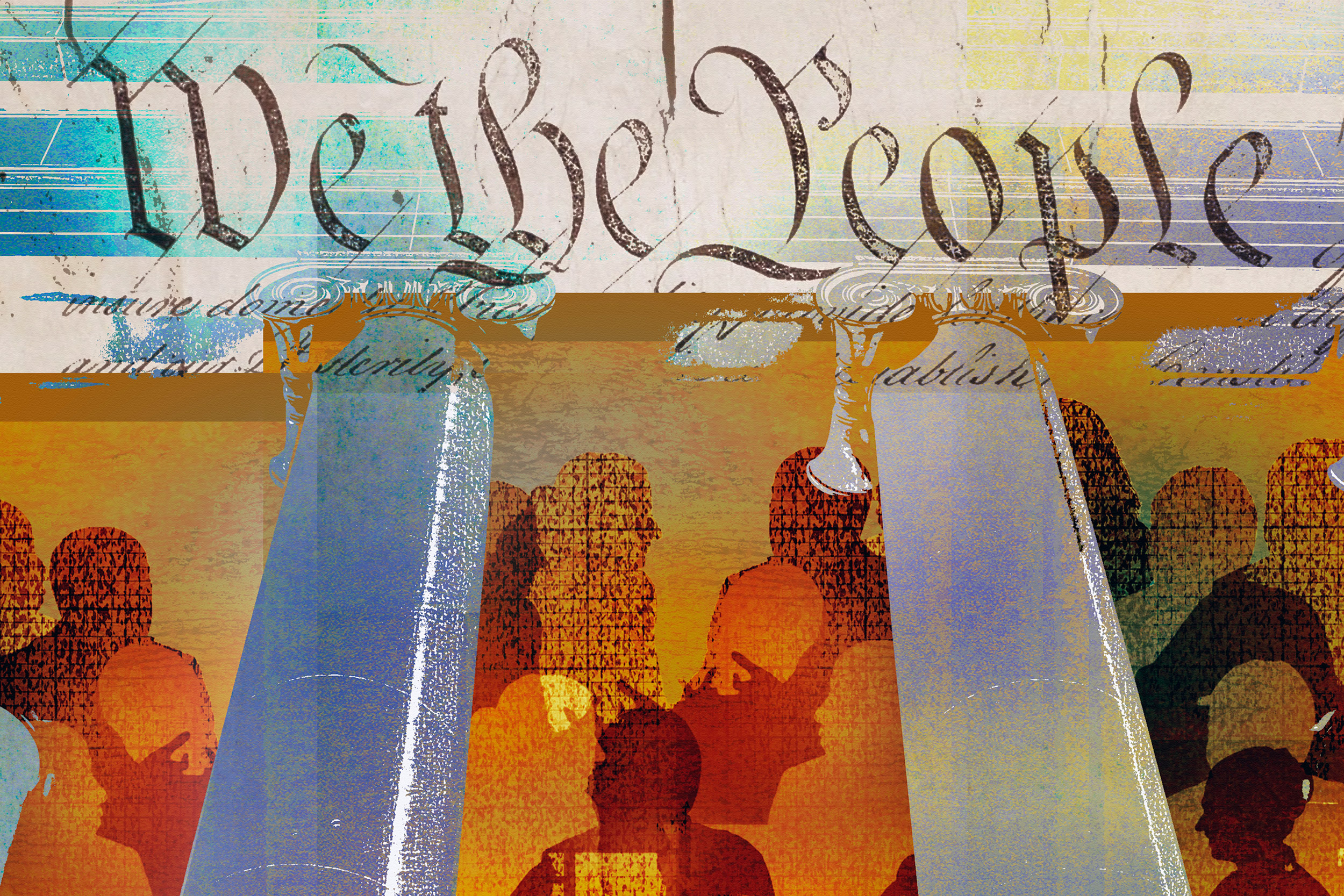Surveys have shown that Americans’ faith in the nation’s political system and its institutions has declined, as partisan polarization and civic disengagement has risen. In response, there is a growing consensus that students — and American democracy itself — would greatly benefit from more robust civic education.
Higher education, in particular, has long had an essential role in helping foster a healthy democracy, but are colleges and universities doing enough to meet the moment?
A panel of specialists on public policy and civic engagement considered the many options during a talk last week hosted by the Ash Center for Democratic Governance and Innovation at the Harvard Kennedy School and the Democratic Knowledge Project at Harvard Graduate School of Education.
During the current period of “incredible turmoil and debate” on college campuses across the country, the question over how higher ed should fulfill that role has become especially salient and important, said Danielle Allen, James Bryant Conant University Professor, during the Friday event.
Allen is also director of the Allen Lab for Democracy Renovation, which focuses on the challenge of how to tune up democratic institutions to ensure they continue operating as intended and to fix components when they falter.
“Cultivating the spirit not only of individual economic success, but of collective work mutually tied to one another, is the secret sauce our nation needs right now more than ever.”
John Bridgeland ’82
Experts say if we truly want to prepare college students to be fully engaged in civic life after graduation, schools need to insist that appropriate training be part of an undergraduate education. That would include necessary academic work as well as the development of the intellectual and social tools necessary to engage in the kind of vigorous, fact-based debate that living in a healthy democracy requires.
It’s “absolutely essential” that every college student take courses in American government, politics, history, and economics regardless of their concentration or career goals, said John Bridgeland ’82, who chairs Civic Enterprises, a social enterprise firm, and worked on domestic policy initiatives during the George W. Bush and Barack Obama administrations.
Schools must also expand how students understand democracy — that it’s a cooperative activity all citizens are part of and responsible for maintaining, Bridgeland argued. And they could do more to encourage and facilitate stints in public service, perhaps by linking it to tuition defrayment.
“I think cultivating the spirit not only of individual economic success, but of collective work mutually tied to one another, is the secret sauce our nation needs right now more than ever,” he said.
Allen noted that one of the biggest obstacles schools must overcome to provide “a democracy education” is “ideological self-segregation and an absence of civil discourse across political divides.”
Panelists said there are some strategies that can help.
Schools not only ought to be deliberate in teaching the history and requisite skills of democracy, but also model the behaviors of a democratic society, such as supporting arguments with facts, listening to and considering evidence from other viewpoints, and having sometimes-uncomfortable conversations, said Cecilia Muñoz, a senior White House staffer on domestic policy during the Obama administration.
Beyond dialogue, schools can also bring students from different viewpoints to work together on local, real-world problems so they learn a cornerstone of democracy — how to move beyond ideological differences in order to get things done, said Bridgeland.
Changing attitudes, curricula, and behavior certainly won’t be easy. Still, lots of college and university officials remain eager to see their institutions play a more intentional role “renovating” American democracy and educating its citizenry, said Rajiv Vinnakota, president of Institute for Citizens and Scholars, an organization assisting more than 100 college presidents pushing for better civic preparedness.
Contrary to news reports about ideological clashes on college campuses over the Middle East or presidential politics that might suggest students today are less open to engaging with those from different perspectives, survey data show “that actually isn’t the case,” Vinnakota said.
One major structural challenge that school administrators will need to overcome, however, is that students are often afraid to speak their minds freely because of a fear over “being canceled” by peers and on social media. It’s a “critical” societal problem with no clear solution, he warned.
Source link

